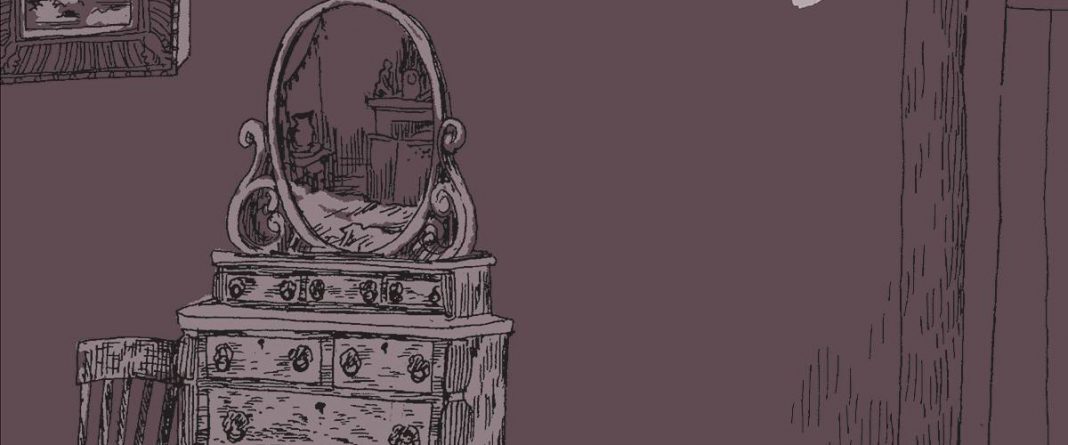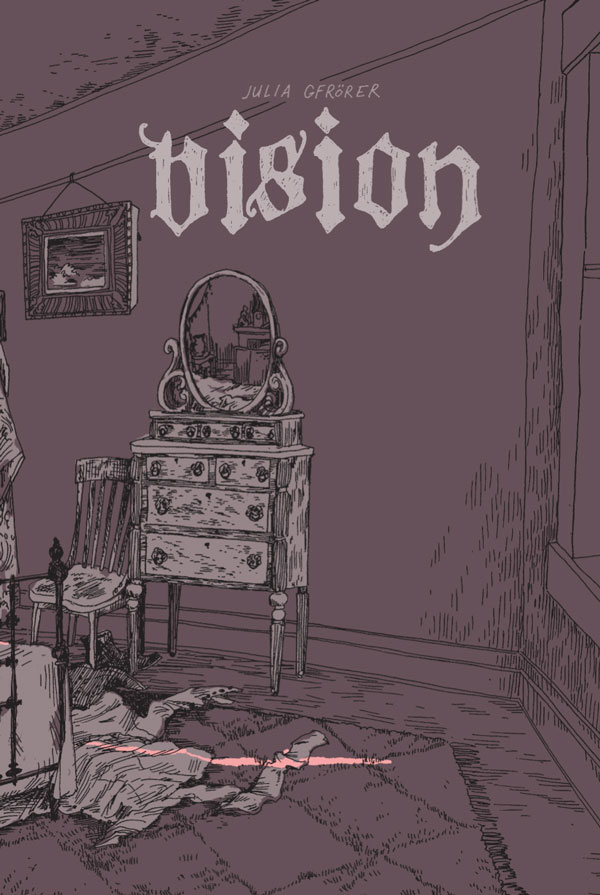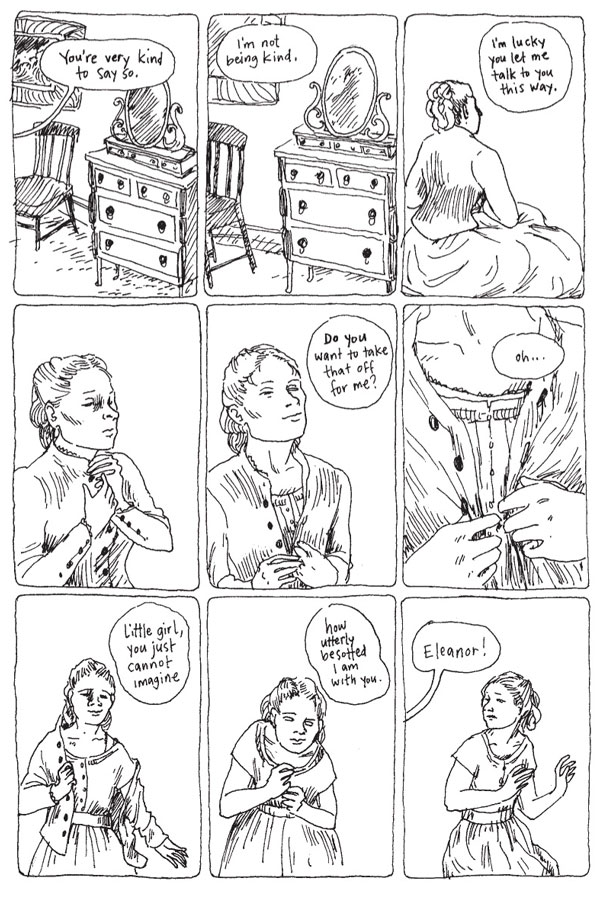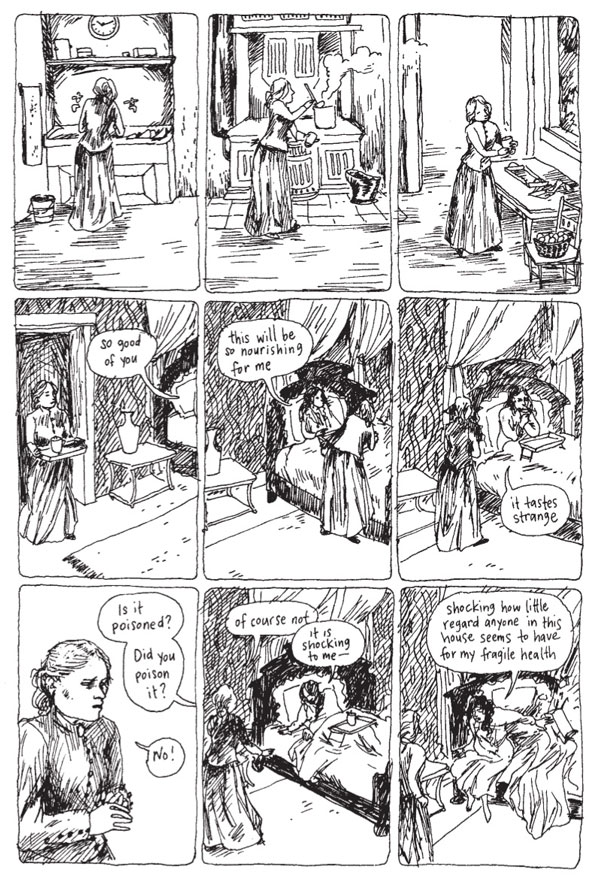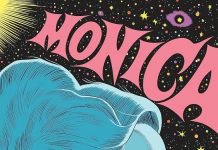Vision
By Julia Gfrörer
Fantagraphics
This latest release from New Hampshire-based cartoonist Julia Gfrörer‘s Vision hearkens back to novels of romance and darkness like Jane Eyre and Wuthering Heights, with perhaps a bit of Rebecca mixed in, but it uses a possibly supernatural element for something more mysterious and less corporeal than the obvious, fashioning a tale of repression and desperate desire.
Eleanor is, by society’s view, a spinster. Her fiance died during war, which accounts for little but Eleanor’s extreme sense of loss — not just loss of that specific man, but loss of her future, loss of her life as something lived, loss of independence from her brother, loss of her freedom, loss of choices. And as a result of the death, she has found herself confined to her brother’s home playing nursemaid for his ailing wife, whose domineering nature is not tempered by sickness, real or imagined.
Eleanor has one escape, though. Late at night, when the house is dark and quiet, Eleanor conducts a vigorous affair with a mirror that rests on her bureau. It talks to her. She converses with it. She performs for it. It ogles her verbally. And sometimes it tries to manipulate.
Eleanor is trapped between two possible acts of death — suicide and murder — as a way out of her misery. She carelessly attempts the first at the beginning of the story, but it’s a halfhearted attempt that amounts to nothing other than a scolding from the mirror. As to the second, Eleanor’s sister-in-law already suspects that Eleanor is trying to kill her, barking her paranoia over being poisoned when Eleanor gives her hot beef tea. She’s sure Eleanor is up to something.
This is Eleanor’s life — trysts with her mirror and run-ins with her sister-in-law, all behind closed doors. Then one day she goes to the doctor to pick-up her sister-in-law’s medicine and the doctor insists on beginning the process of cataract surgery. That’s the moment when things start to really shift for Eleanor and she feels pressed to make a decisive move about her future.
There are moments in Vision when you wonder if Eleanor’s mirror is really her dead fiance. Or is it someone random who has found a way into her mirror and taken advantage of her lonely need? Or is Eleanor a madwoman in the mansion, hearing a voice that she wishes she could hear? The voice makes me think of chatting online, encountering people you don’t know and forming relationships despite the distance and mystery. There’s a manipulative element to the mirror’s dialogue, followed by a performative element to Eleanor’s responses. It’s voyeuristic, both on the part of the mirror and the reader.
Though Eleanor wants to see the person in the mirror, to go to where they are and touch and be with the mirror being, she has no idea what that would be like, and her excursions — real or imagined — feature darkness, endless, with nothing to grasp onto. That’s how Eleanor feels in her life outside the mirror, though, and whatever fantastic circumstance has overcome her perception in regard to the mirror, it should never be forgotten that all a mirror really does is offer a reflection of the person looking into it.
Gfrörer is truly the best at what she does, and I can’t honestly say that anyone else does exactly what she does. She’s mined her own territory in comics with her stories featuring a mix of elusive reality and foreboding moods that are realized in scratch scrawls that manifest as frantic figures, all suggesting something we can’t totally conceive and yet understand emotionally, and Vision is as strong and stark as anything that’s come before it.


